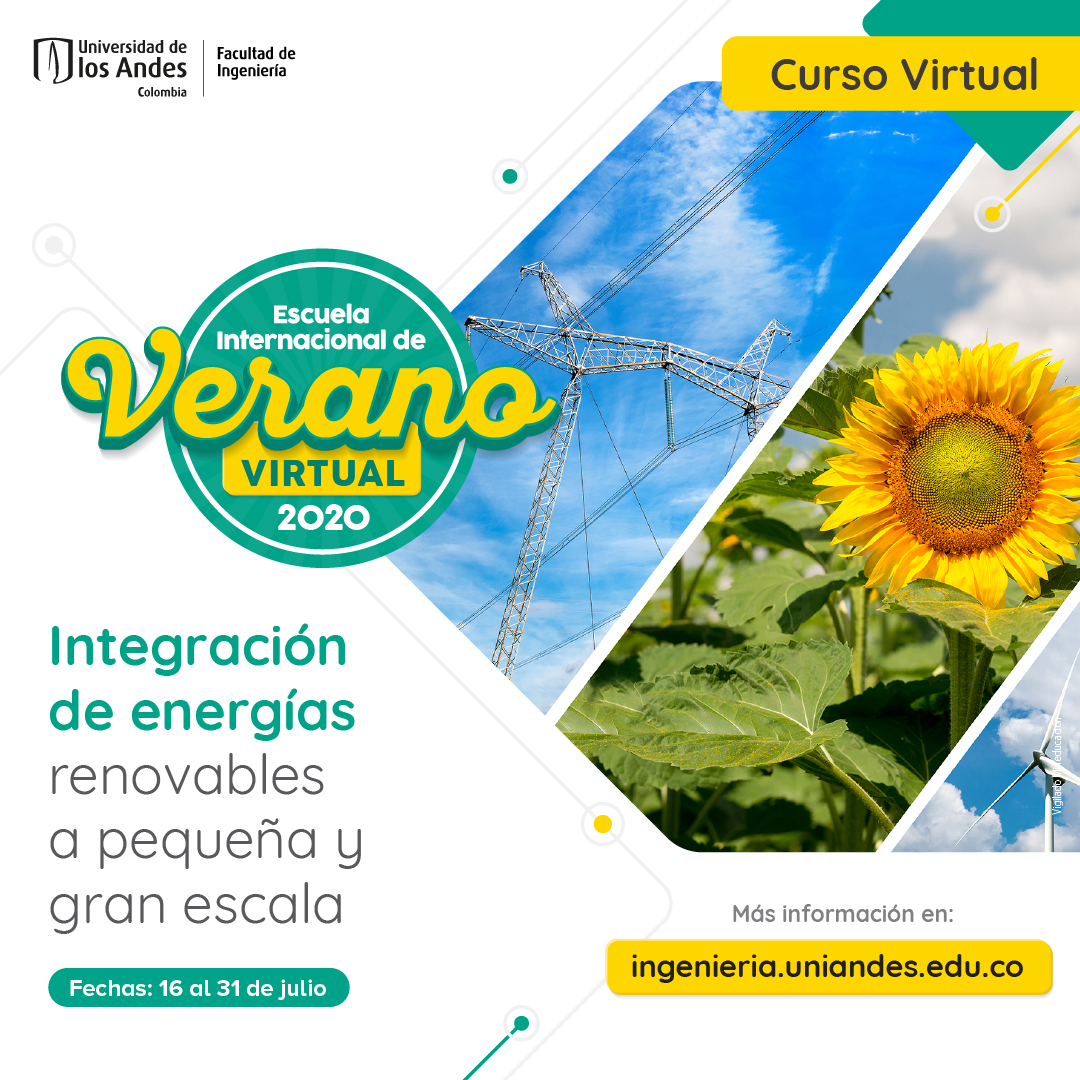Integración de energías renovables a pequeña y gran escala
 Descripción
DescripciónEste curso ofrece una amplia visión sobre las oportunidades y desafíos que presenta la integración de energías renovables en los sistemas de energía, desde la perspectiva y conocimiento de las nuevas tecnologías, su integración en sistemas de distribución y micro-redes (ejemplos, planeamiento, control y estabilidad) hasta aplicaciones a nivel sistema interconectado de potencia, su aplicación en procesos industriales, las oportunidades de integración regional y su valor en mitigación al cambio climático.
 Profesores invitados
Profesores invitadosClaudio A. Cañizares is a Full Professor and the Hydro One Endowed Chair at the Electrical and Computer Engineering Department of the University of Waterloo. He received the Electrical Engineer degree from the EPN in Quito-Ecuador in 1984, and his MSc (1988) and PhD (1991) degrees in Electrical Engineering are from the University of Wisconsin- Madison. His research activities focus on the study of stability, modeling, simulation, control, optimization, and computational issues in large and small girds and energy systems in the context of competitive energy markets and smart grids. He is an IEEE Fellow, as well as a Fellow of the Royal Society of Canada, where he is currently the Director of the Applied Science and Engineering Division of the Academy of Science, and a Fellow of the Canadian Academy of Engineering. He is also the recipient of the 2017 IEEE PES Outstanding Power Engineering Educator Award, the 2016 IEEE Canada Electric Power Medal, and of various IEEE PES Technical Council and Committee awards and recognitions, holding leadership positions in several IEEE-PES Technical Committees, Working Groups and Task Forces.
Rodrigo Palma-Behnke was born in Antofagasta, Chile. He received the B.Sc. and M.Sc. degrees in engineering sciences from the Pontificia Universidad Católica de Chile, Santiago, Chile, in 1992 and 1994, respectively, and the Dr.Ing. degree in engineering sciences from the University of Dortmund, Dortmund, Germany, in 1999. He is currently an Associate Professor with the Electrical Engineering Department, University of Chile, Santiago. His current research interests include the planning and operation of electrical systems in competitive power markets and new technologies.
Horario y contenidosLas clases se dictarán de manera virtual y sincrónica en el horario de 9:00 a.m. a 11 a.m los días 16 y 17 de julio de 2020 y de lunes a viernes de 9 a.m. a 12 p.m. a partir del 21 de julio hasta el 31 de julio de 2020.
Conozca el programa con los temas de cada sesión en el siguiente enlace
Requisitos académicos y técnicosComo requisitos académicos, para este curso se necesita formación básica sobre conceptos de economía y matemáticas básicas de ingeniería.
Como requisitos técnicos se necesitan licencias de software de Matlab y de Homer.